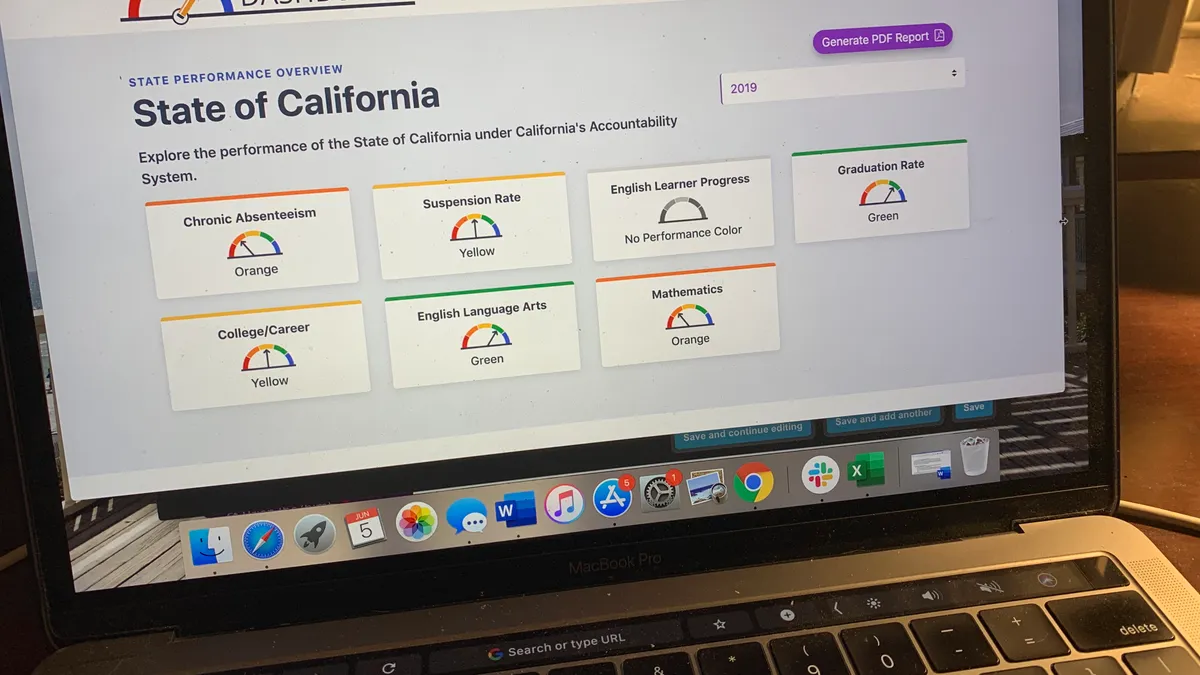Dive Brief:
- A new report from Results for America, a nonprofit working with education decision-makers, outlines steps districts, states and the federal government can take to support the use of daily evidence- and data-based decisions. The report cites "the urgent need to recover from the COVID-19 pandemic, increase economic mobility and ensure racial justice" as reasons to accelerate the use of data, evidence and evaluation
- The report recommends districts work with their state and federal governments to produce more relevant, meaningful and accessible data to support schools. This includes utilizing longitudinal data systems, which should integrate administrative data from early childhood, postsecondary education, workforce, judicial, and public health and benefits agencies in order to be equitable and effective.
- The report also suggests states and districts fund the use of evidence-based approaches in school improvement plans and consider a full range of evidence in the intervention selection process. This would also mean districts stop ineffective or less-effective practices, investing instead in more effective approaches like high-dosage tutoring, early college high schools and high-quality curricula.
Dive Insight:
"Shifting more funding toward evidence-based interventions means that more students will benefit from effective programs and practices," notes the report, "2021 Moneyball for Education Policy Recommendations." In choosing an evidence-based intervention, the report says districts, along with states and the federal government, should:
- Examine a range of evidence and avoid outlier studies.
- Ensure the intervention has demonstrated having a substantial impact on outcomes by considering the effect size in the evidence examined.
- Ensure the intervention chosen is relevant to the challenge addressed, with overlap between the studied population and the population intended to benefit, as well as between the intervention's purpose in practice and its use in the studies.
The report adds that the use of evidence-based interventions and data will help leaders understand what programs are working in their communities, noting the government has "made important progress" in this area since 2001, when Congress passed the No Child Left Behind Act.
As a result of COVID-19 school closures, districts are working to establish different programs and interventions to address learning loss. Experts have suggested part of this process should be looking for a long-term strategy rather than just a one-year plan.
These decisions can and should be made by examining data and choosing a range of relevant studies to draw from, the Results for America report points out.
Among successful examples cited are the Massachusetts Department of Elementary and Secondary Education’s Office of Planning and Research, which collaborates with academic researchers to evaluate school turnaround and other efforts in the state. This, in turn, produces data that can inform future decisions by education leaders.






 Dive Awards
Dive Awards








